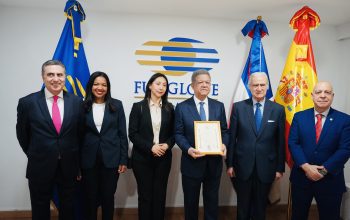news
GFDD to Partner with UNA-USA Council of Organizations and other NGOs for UN Panel Discussion on Climate Change and its Impact on Children’s Health
October 25, 2016
The Global Foundation for Democracy and Development (GFDD) in partnership with the United Nations Association of America Council of Organizations (UNA USA COO) and the Institute for Life Sciences Collaboration will host a panel discussion to celebrate the adoption of the 2030 Agenda for Sustainable Development (the 2030 Agenda), as ratified by the UN General Assembly. Marc Jourdan, GFDD’S UN Programs & Outreach Manager, will give a presentation focusing on
climate change and its impact on small island developing states like the Dominican Republic.
Featuring presentations by UN Agency staff, pharmaceutical industry experts and representatives of civil society organizations specializing in climate policy issues, the discussion will consider the issue of climate change and its impact on children’s health. It will be followed by an interactive Q&A session with the audience.
Background
information
Climate is one of the factors that influence the distribution of diseases borne by vectors, such as fleas, ticks, and mosquitoes, which spread pathogens that cause illness. The geographic and seasonal distribution of vector populations and the diseases they can carry depends not only on climate but also on land use, socioeconomic and cultural factors, pest control, access to health care, and human responses to disease risk, among other factors. Daily, seasonal, or
year-to-year climate variability can sometimes result in vector/pathogen adaptation and shifts or expansions in their geographic ranges. Such shifts can alter disease incidence depending on vector-host interaction, host immunity, and pathogen evolution.
Infectious disease transmission is sensitive to local, small-scale differences in weather, human modification of the landscape, the diversity of animal hosts, and human behavior that affects vector-human contact, among
other factors. Enhanced vector surveillance and human disease tracking are therefore needed to address these concerns.
Date: Thursday November 17, 2016
Location: UN Church Center, 2nd Floor Conference 777 United Nations Plaza (at 44th Street, between First and Second Avenues), New York, NY 10017.
Time: From 2PM to 4.30PM
For more information:
Marc Jourdan
Tel: 212.751.5000
marc@globalfoundationdd.org
About the Institute for Life Science Collaboration
The Institute for Life Sciences Collaboration’s (ILSC), is a public charity Foundation whose mission of outreach to individuals and entities, on the national, regional and international levels, inviting and encouraging them to apply their respective resources to
collaborative programs and projects. ILSC is committed to enlist and devote human and financial capital to maximize the benefits to global health, whether in developing or developed countries or in the Global South or North.
About the United Nations Association of the United States (UNA-USA)
UNA-USA is a membership organization dedicated to educate the American people about the United Nations. For 70 years UNA-USA has worked to accomplish its mission of
informing, inspiring and mobilizing Americans to support the principles and vital work of the UN, strengthening the UN system, promoting constructive US leadership in that system and achieving the goals of the UN Charter. Forming a strategic alliance with the UN Foundation in 2010, UNA-USA continues to pool talents to increase public education and advocacy on the work of the UN.
About the UNA USA Council of Organizations (COO)
The COO is a coalition of
nongovernmental organizations (NGOs) and local groups of organizations with interests in education, social justice, labor, sustainable development, energy and climate, millennium development goals, human rights, health and women’s issues that all share the common goals of making the American public more knowledgeable about global issues and strengthening the U.S. – UN relationship.






